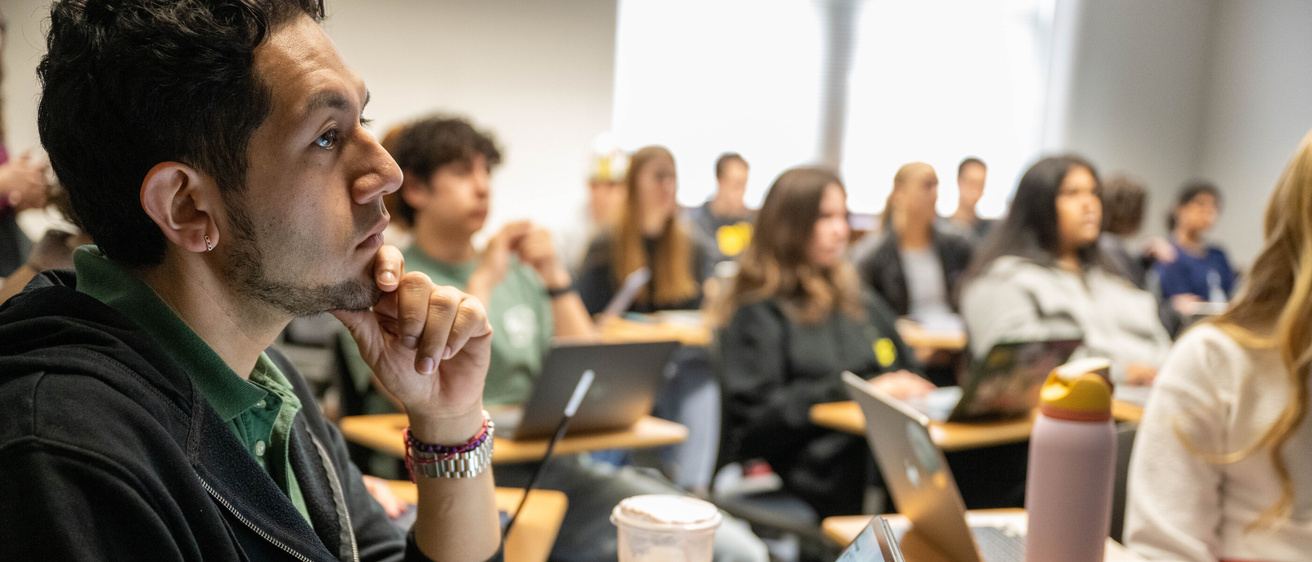Main navigation
Transform your world through language
Discover your passion for Spanish and Portuguese at Iowa, where smaller classes and renowned faculty create an intimate learning community. Whether you're exploring creative writing, linguistics, or cultural studies, you'll develop the language proficiency and cross-cultural understanding that opens doors across every field. Join a close-knit community where internationally famous writers and top scholars are accessible and invested in your success.
Explore undergraduate programs
Bachelor of Arts in Spanish
Develop your Spanish fluency while exploring literature, culture, and linguistics—skills that open doors in healthcare, education, business, and beyond.
Minor in Spanish
Develop professional-level Spanish communication skills and cultural understanding that enhance any major and boost your career prospects globally.
Minor in Latin American Studies
Gain interdisciplinary expertise in Latin America's history, politics, and culture—knowledge that strengthens any major with global perspective.
Minor in Portuguese
Build Portuguese proficiency and cultural literacy through literature and film, expanding your opportunities in international business and government.
Certificate in Latin American Studies
Prepare for careers in bilingual education, international business, and government work with specialized knowledge of Latin American cultures.
Why choose Spanish and Portuguese at Iowa?
A renowned creative writing program and personalized learning.
There are countless ways language skills enhance your career—so we offer diverse research and creative opportunities to help you find your direction and achieve your goals.
Our students come from many academic backgrounds, often double-majoring in nursing, psychology, education, business, or human physiology. When they graduate, they pursue careers in healthcare, law, education, government, and nonprofit sectors, all strengthened by their Spanish proficiency. They work in hospitals, schools, community organizations, international businesses, translation services, and government agencies, bringing valuable bilingual skills to every environment.
We invite you to join our close-knit community and discover how Spanish becomes not just your second major, but your true passion. Apply, schedule a visit, or request information today!
# 2
According to U.S. Census data, Spanish is the second-most spoken language in the United States after English
118
Fall 2024 data
Your journey starts here
Our award-winning faculty lead summer study abroad programs in Spain, mentor creative writers through public readings, and provide research opportunities in Hispanic linguistics and literature. With small class sizes and engaged instructors, plus vibrant extracurricular activities like Spanish Club and Cafecito Cervantes, you'll find a supportive community that extends far beyond the classroom.
Need tutoring?
Our tutors are native speakers or highly proficient users of the languages taught at the University of Iowa.
